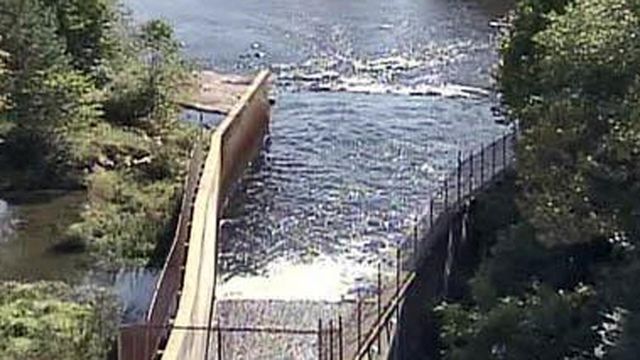Flow From Falls Lake Into Neuse River Might Be Halved
Federal officials have proposed cutting the amount of water released from Falls Lake into the Neuse River by half in the spring to extend the lake's water supply as long as possible.
Posted — UpdatedFalls Lake is more than 8 feet below normal levels, and water continues to flow out daily despite the ongoing drought. The U.S. Army Corps of Engineers, which manages the lake, requires that a certain amount of water flow from the lake into the Neuse River to maintain water quality downstream.
Terry Brown, the Army Corps of Engineers water control manager for much of North Carolina, said reducing the daily flow in the river could help the lake withstand the drought.
"Let's stretch it out as long as we can and as far as we can because certainly we don't want to see the lake drained," Brown said. "Just buying time is what we're trying to do."
Dean Naujoks, of the Neuse River Foundation, said people in the downstream communities should get a say in the process. Smithfield, Goldsboro, Kinston and other communities in eastern North Carolina use the river as their primary source of drinking water.
"My concern is that the Corps is making this decision without any scientific basis," Naujoks said. "I have real concerns about that, and I feel like that could have a real impact on downstream communities."
Goldsboro Public Utilities Director Karen Brashear said she supports a reduced release to help keep water in Falls Lake. She and others said they would like to see a test run first to study possible impacts.
"We're not positive what the reductions will mean downstream, but from the numbers we've seen, we're hoping the downstream flows will be adequate," Brashear said.
The Army Corps Of Engineers office in Atlanta would have to approve any request to reduce water flow. Brown said officials would monitor a lower flow into the Neuse closely for any possible negative effects.
• Credits
Copyright 2024 by Capitol Broadcasting Company. All rights reserved. This material may not be published, broadcast, rewritten or redistributed.






